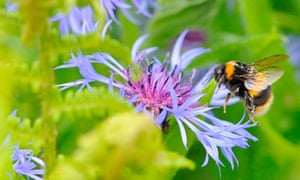
Investing in biodiversity protection will help post-COVID-19 recovery: UNEP
Greater investment in biodiversity conservation should be prioritized by governments and industry in order to hasten economic recovery after disruptions linked to COVID-19 pandemic, Inger Andersen, the executive director of UN Environment Program (UNEP) said on Friday during the World Environment Day.
Andersen said that channeling additional funds towards restoring biodiversity hotspots suffering from negative impacts of climate change, rapid population growth and urbanization, will enhance the resilience of communities whose livelihoods have been disrupted by the viral respiratory disease.
“COVID-19 has killed hundreds of thousands of people and shrunk the global economy by trillions of dollars,” said Andersen.
Climate change, pollution and biodiversity carry price tags that are heftier and longer-lasting. But if we make the right investments, we don’t just avoid future damage. We make everyone’s lives better,” she added.
The 2020 World Environment Day whose theme was “Time for Nature” highlighted threats facing biodiversity while appealing for strategic policy and financing interventions to heal the planet.
Andersen said the event that was hosted by Colombia but observed virtually across the globe, underscored the critical role of healthy ecosystems to ensure communities are free abject poverty, hunger and disease.
She said that human-driven ecosystems degradation has fuelled a spike in infectious diseases while undermining the ability for nations to provide food and clean water to rapidly growing populations.
“As ecosystems and biodiversity fall to cities, agriculture, infrastructure, climate change and pollution, nature’s ability to provide food, oxygen, clean water and climate regulation plummets. This directly impacts on human health and wealth,” said Andersen.
She said that human encroachment on wildlife habitats is to blame for a spike in lethal infectious diseases that have exerted pressure on public health infrastructure while undermining global peace and prosperity.
Andersen said that COVID-19 related lockdowns provided an opportunity for communities to reflect and chart a new path in their relationship with nature.
“During the lockdowns, we saw air pollution clear and nature coming out of hiding- from penguins wandering in the streets of Cape Town to Kangaroos through Adelaide. This gives us a glimpse into how much better our lives could be if we lived in harmony with nature,” said Andersen.
She said that stimulus packages that governments have rolled out to revive their economies after months of COVID-19 related shutdowns, should also be channeled towards programs that advance the green agenda.
“These funds should be aligned with pro-nature growth in line with sustainable development goals, the Paris Agreement and the upcoming framework on biodiversity,” said Andersen.
She said that investments in restoration of wetlands, mangrove forests and clean energy will ensure communities are more climate resilient, food secure and healthy in a post COVID-19 era.






